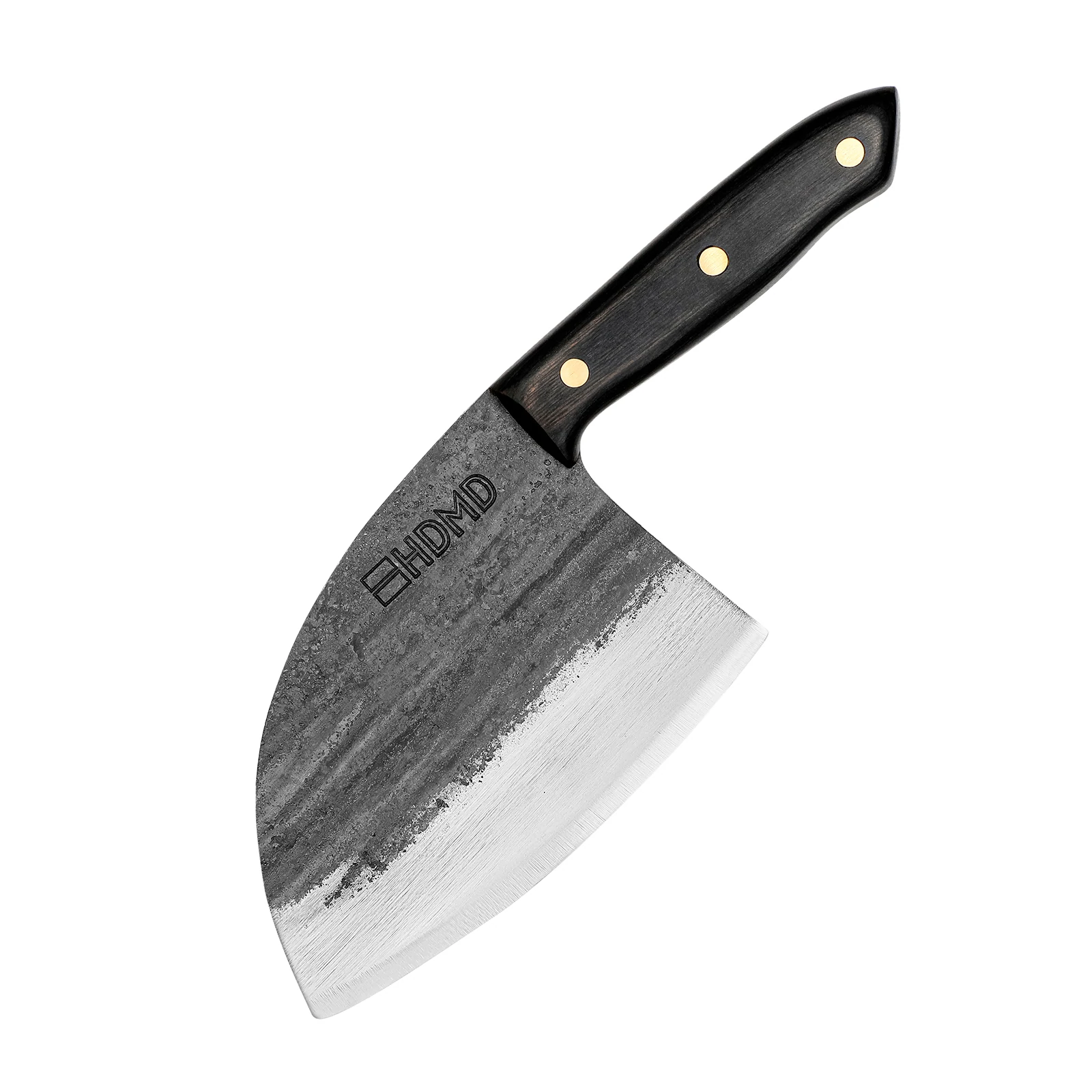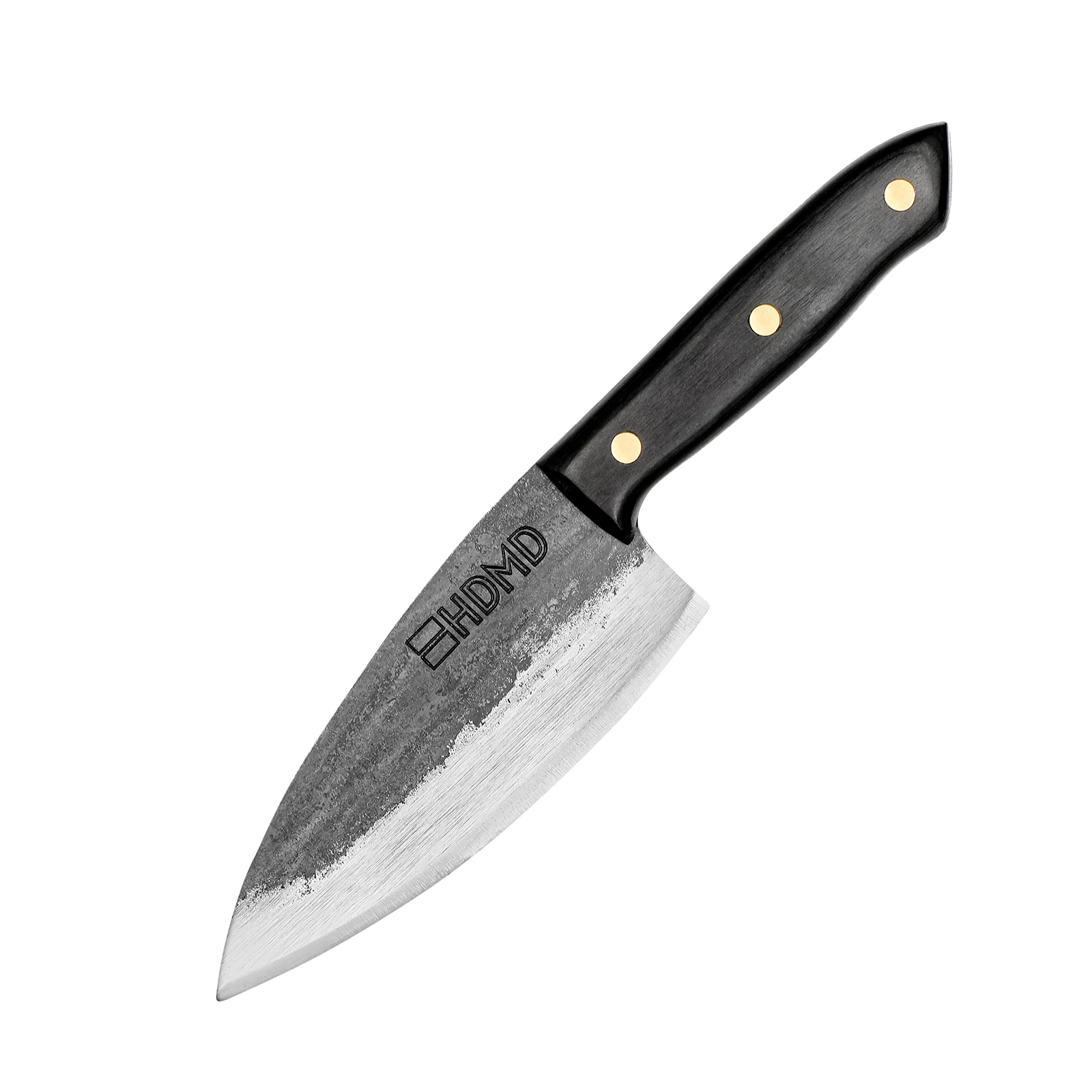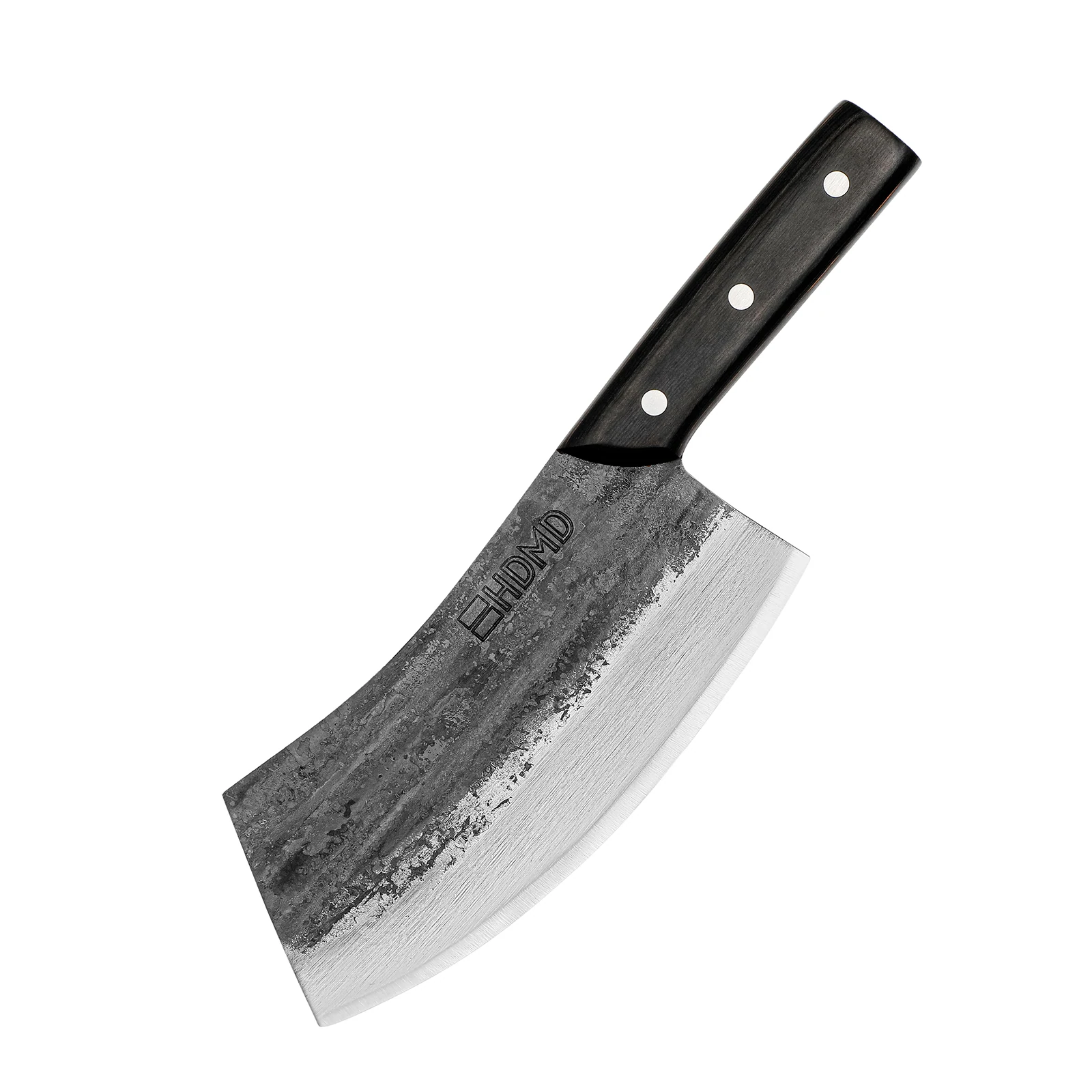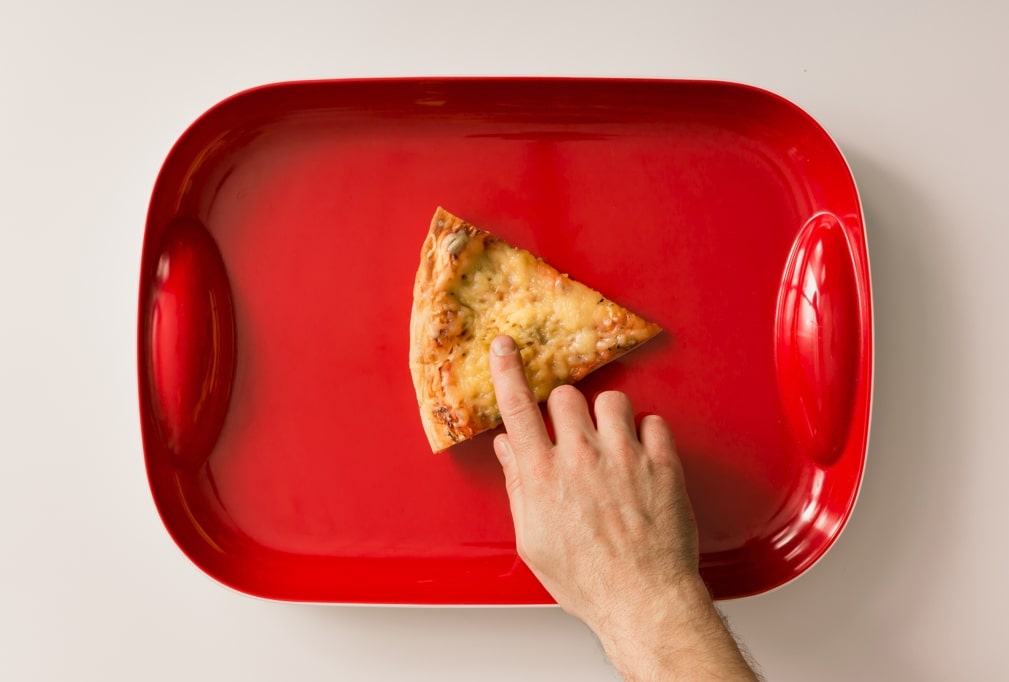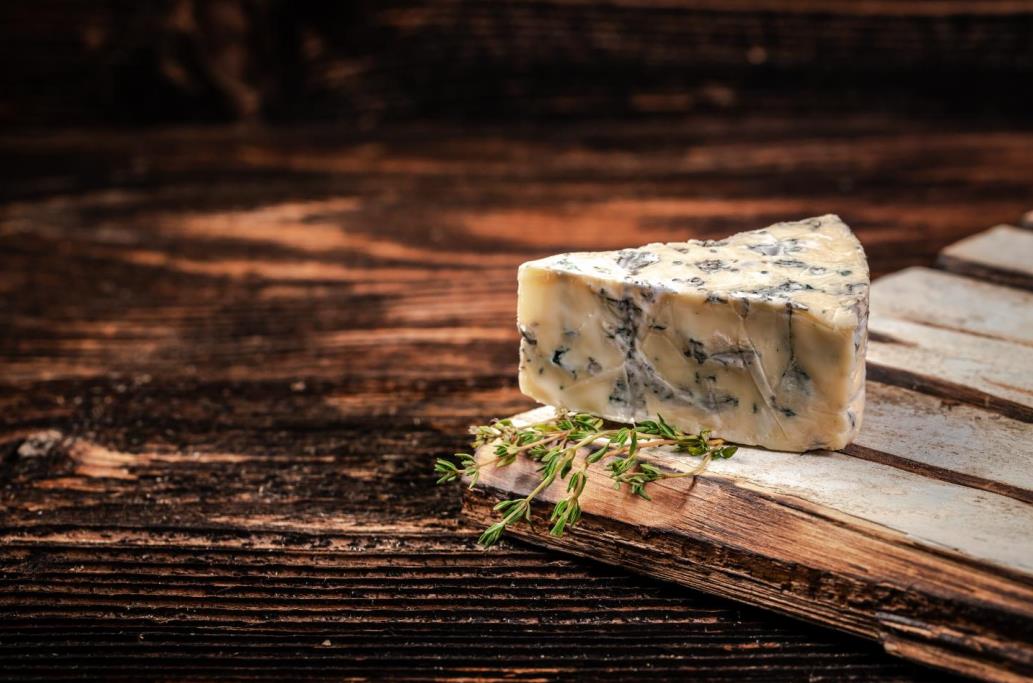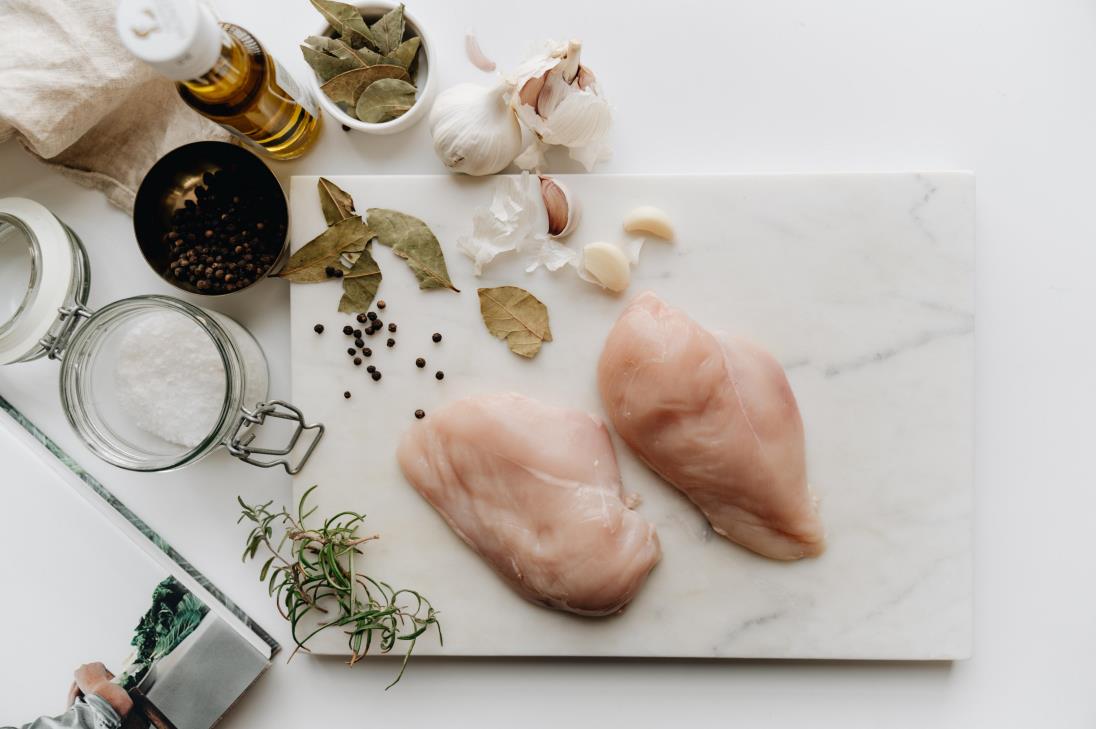A modern kitchen without a dishwasher is hard to imagine. The machine helps save time and energy by doing the most tedious household tasks – washing dishes. While dishwashers are very convenient, there is a common concern that they can damage or dull knives. Is it true?
The simple answer is – yes, dishwashers can dull knives. However, this depends on several factors, including the material of the knife, the type of detergent used, and how the knife is loaded into the dishwasher.
This article discusses how dishwashers damage knives and give some tips on cleaning knives properly. You’ll also learn about the best way to store knives to keep them sharp.
Table of contents
How does the dishwasher dull knives?

Dishwashers work the same way as washing machines. It features arms that rotate and spray hot water and detergent onto the dishes. The water in the dishwasher is usually between 120°F to 140°F. The combination of hot water and detergent can be tough on knives.
Detergent chemicals that may ruin the knife
Dishwasher detergent typically contains enzymes that help break down protein, fats, and starches. The chemicals in dishwasher detergent can also be tough on knives. Over time, these chemicals can dull the blade or even damage the steel.
Detergents contain chemicals reactive to certain types of metals. In particular, dishwasher detergents contain sodium hypochlorite, a strong oxidizing agent, and sodium chloride, also referred to as simple bleach.
The reaction between these chemicals and the metal in the knife can cause corrosion. Over time, the detergent chemicals will dull the knife or even damage the steel. A dull knife isn’t as effective and can be dangerous to use.
Heat and water pressure
Dishwashers release a high-pressure stream of hot water that breaks down food particles on dishes. While it works best on dishes, the high-pressure hot water stream damages knives. Stainless steel blades are especially susceptible to damage from hot water.
Hot water on knives can cause the steel to weaken and become brittle. Continued exposure to hot water can cause the knife to warp or even break. If your knife has a wooden handle, the hot water can cause the wood to swell and crack.
Due to the turbulence caused by the pressure and movement of the water, knives can also bang against other items in the dishwasher. Expect nicks, dents, and scratches on the blade and handle. Some knives may also become misaligned due to the movement in the dishwasher.
Handpicked for you
True cutting power in the palm of your hand
How dishwasher cycles damage knives
If you ever wonder what happens inside your dishwasher, think of it as a mini washing machine. The dishwasher contains a spinning arm that sprays water and detergent onto the dishes.
The process starts with a pre-rinse cycle using hot water to remove any large food particles from the dishes. There’s a main wash cycle with hot water and detergent to clean the dishes. The final rinse cycle removes any leftover detergent and sanitizes the dishes with hot water.
The process is characterized by high turbulence and banging, which often leads to nicks, dents, and scratches on your knife. Before using the dishwasher, it’s important to first arrange the knives in a way that minimizes the risk of damage. For instance, you can place the knives in a mesh bag designed for holding silverware during the dishwashing cycle.
How to load knives in the dishwasher
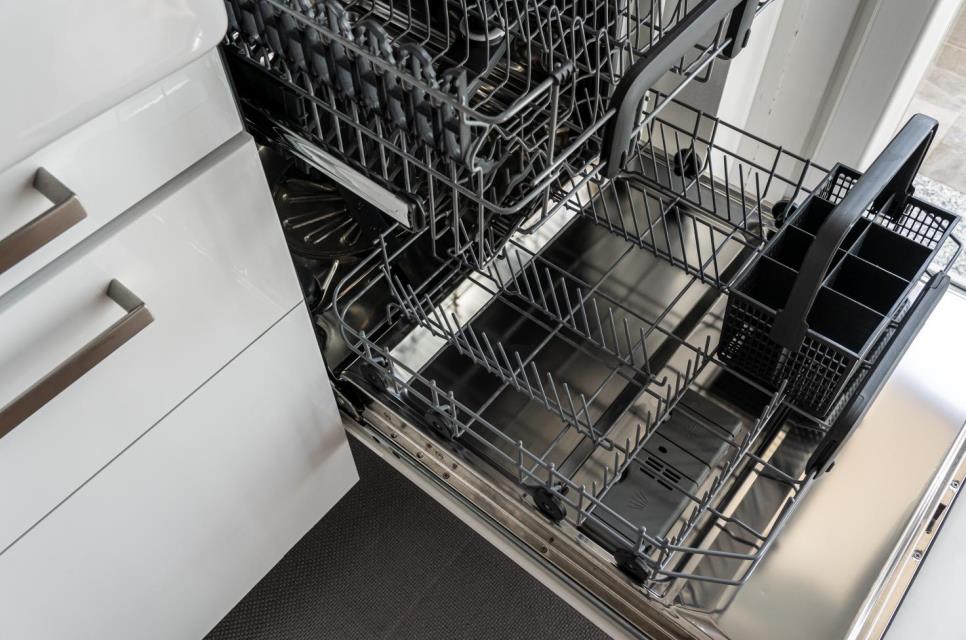
We DO NOT recommend using dishwasher for any knives. Especially quality hard knives made with carbon steel. But if you choose to use a dishwasher, there are some steps you can take to minimize the damage. Your dishwasher manual likely has recommendations on how to load knives. If not, follow these tips:
- Place knives in the silverware basket with the blade pointing down. You are less likely to injure yourself this way, and the knives are less likely to become damaged.
- Arrange knives, so they don’t touch each other or other items in the dishwasher. Closely stacked knives can become dulled from banging against each other.
- Use a mesh bag designed for holding silverware during the dishwashing cycle. Some dishwashers have a special silverware basket with a cover. These baskets help protect knives from damage.
- If your dishwasher has a gentle cycle, use it. The lower water pressure and temperature will help minimize damage.
- Avoid using the dishwasher’s heating element to dry your knives. The high heat can damage the steel. Instead, opt for towel drying.
Properly loading your dishwasher with knives can help minimize the risk of damage. Suppose you don’t have a dishwasher or want to protect your knives further. In that case, handwashing is always an option.
How to properly clean kitchen knives
Cleaning knives is an important part of kitchen maintenance. You want to keep your knives clean for food safety reasons, but you also want to keep them in good condition to extend their lifespan.
Handwashing is the best way to clean knives. It’s gentle on knives and allows you to look at the knife for any nicks, dents, or scratches. While you can still place your knife in the dishwasher, hand washing them is best.
To handwash your knives, you need a few items:
- A clean dishcloth or sponge
- Mild dish soap
- Soft towel for drying
- Hot water
Note that knives can be extremely sharp and dangerous. Ensure the sharp edge is pointing away from you to avoid injury.
Step-by-step guide on how to clean knives
The following is a step-by-step guide on how to handwash your knives:
- Fill the sink with hot water and add a few drops of mild dish soap. Ensure the water isn’t too hot, as it can damage the knife. Also, take note of chemicals used in the dish soap, as some can be corrosive.
- Place the knives in soapy water and let them soak for a few minutes. This will loosen any food particles stuck on the knives. Use a clean dishcloth or sponge to wipe down the knives, taking care not to cut yourself on the sharp edge.
- If the knives are particularly dirty, you can use a toothbrush to scrub away stubborn residue. Some people also use a vinegar solution to clean knives, but this isn’t necessary.
- Once you’re done cleaning the knives, rinse them off with hot water. Be sure to remove all the soap, as it can damage the knives if left on for too long. Some people also like to rinse their knives with cold water to prevent rusting.
Does soaking knives in water dull them?
Sometimes you may forget and leave your knives in the water for too long. Other times it’s a deliberate decision, such as when you’re cleaning a particularly dirty knife. While it’s not ideal, it won’t necessarily dull your knives. However, water containing harsh chemicals can damage the knives.
To avoid any damage, remove the knives from the water as soon as you’re done cleaning them. If you forget and leave them in for too long, dry them off immediately with a soft towel. It’s also possible for wooden handles to swell and break if left in water for too long, so be sure to remove them.
How to safely dry and store your knives
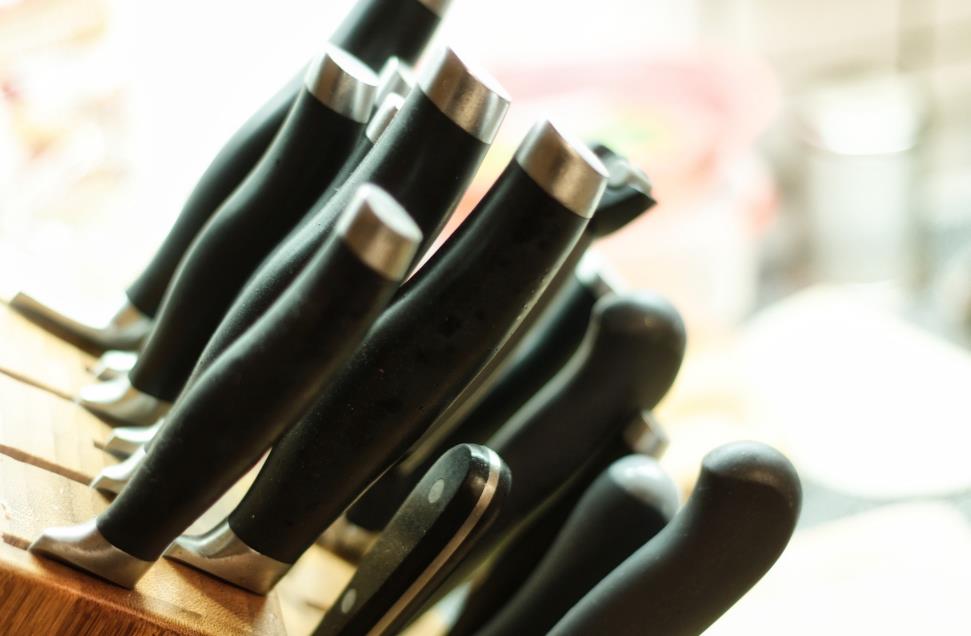
After you’ve washed and rinsed your knives, it’s important to dry them properly to prevent rusting. The best way to dry your knives is to hand-dry them with a soft towel.
Below is a step by step guide on how to safely dry and store your knives:
- First, you need to handle the knife by the handle. The blade is extremely sharp and can cause serious injury.
- Use a clean, soft towel to dry the blade and handle. Avoid air-drying as it causes water spots and can promote rust. If you’re in a hurry, you can use a paper towel to dry the knife.
Once the knife is dry, store it in a safe location. Many people use a block or magnetic strip to store their knives. Others prefer under cabinet knife storage. Whichever method you choose, ensure they are child-proof and safe.
Are stainless steel knives dishwasher safe?
It’s a common misconception that stainless steel knives are dishwasher safe. While some part of this is true, it’s not the whole story. Stainless steel is a durable and corrosion-resistant material. However, it’s not immune to damage from the dishwasher.
The conditions in a dishwasher are harsh, with high temperatures and strong detergents. Not to forget the turbulence caused by the dishwasher cycle. Over time, these conditions can damage and dull your knives. It’s best to handwash your knives to prolong their lifespan.
If you must wash your knives in the dishwasher, take care to dry them immediately after the cycle is complete. This will prevent water spots and corrosion. It’s also good to store them in a safe location, such as a block or magnetic strip.
FAQs
What is the best way to store knives?
The best way to store knives is in a block or sheath. These methods protect the blades from damage and keep them sharp. It also prevents accidents by keeping the knives out of reach of children.
What are some common causes of dull knives?
Dull knives can be caused by several factors, including improper storage, exposure to moisture, and using the wrong cutting surface. Over time, even the best-kept knives will eventually become dull and need to be sharpened.
Closing
Dishwashers are a convenient way to clean your dishes, but they can also damage your knives. The high temperatures, strong detergents, and turbulence can cause damage and dull your knives over time. It’s best to handwash your knives to prolong their lifespan. If you accidentally put a knife in a dishwasher, dry it immediately and store it safely. You must take care of your knives to prevent accidents and keep them in good condition.
Visit our store for discounts on high-quality knives that will change how you cook. Our blog has more information on different types of knives and how to take care of them.

